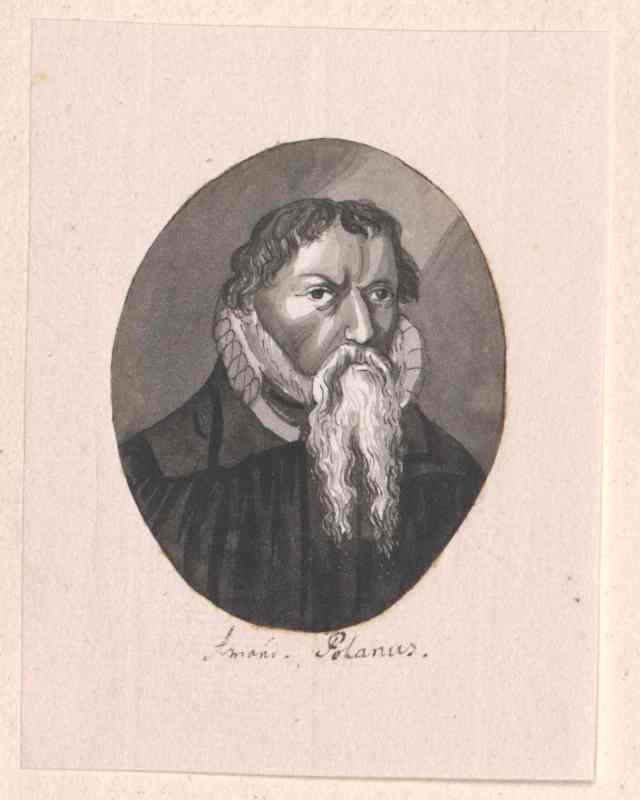Amandus Polanus Von Polansdorf on:
[Wikipedia]
[Google]
[Amazon]
 Amandus Polanus von Polansdorf (16 December 1561,
Amandus Polanus von Polansdorf (16 December 1561,
A list of Polanus' works at the Post-Reformation Digital LibraryThe Correspondence of Amandus Polanus of Polansdorf
i
EMLOSummaries of ''Syntagma''
by Wes Brendenhof
Table of Contents of ''Syntagma'' in English
by Travis Fentiman
The Meaning and Method of Systematic Theology in Amandus Polanus
by Max Eugene Deal
English translation of ''Syntagma'' in 10 volumes
German Calvinist and Reformed theologians 17th-century Calvinist and Reformed theologians 17th-century German Protestant theologians 1561 births 1610 deaths German male non-fiction writers 17th-century German writers 17th-century German male writers {{Calvinism-stub
 Amandus Polanus von Polansdorf (16 December 1561,
Amandus Polanus von Polansdorf (16 December 1561, Opava
Opava (; german: Troppau, pl, Opawa) is a city in the Moravian-Silesian Region of the Czech Republic. It has about 55,000 inhabitants. It lies on the river Opava (river), Opava. Opava is one of the historical centres of Silesia. It was a histori ...
, Silesia – 17 July 1610, Basel, Switzerland) was a German theologian of early Reformed orthodoxy. After his education in Opava, Wrocław, Tübingen, Basel, and Geneva (1577–1584), he served as a tutor to the family of Zierotin
The House of Žerotín or House of Zierotin was a Czech noble family in the Lands of the Bohemian Crown, one of the oldest and most illustrious noble families from Bohemia and Moravia. The family was first mentioned around the year 1200 as ''Bl ...
in Heidelberg and Basel (1584–1590), and later taught at the Bohemian Brethren
, image = AgnusDeiWindow.jpg
, imagewidth = 250px
, caption = Church emblem featuring the Agnus Dei.Stained glass at the Rights Chapel of Trinity Moravian Church, Winston-Salem, North Carolina, United States
, main_classification = Proto-Prot ...
school in Ivančice. Between 1591 and 1595 he again tutored for the Zierotins, traveling from Moravia to Strasbourg
Strasbourg (, , ; german: Straßburg ; gsw, label=Bas Rhin Alsatian, Strossburi , gsw, label=Haut Rhin Alsatian, Strossburig ) is the prefecture and largest city of the Grand Est region of eastern France and the official seat of the Eu ...
and Basel. Polanus spent the last part of his life in Basel, where he became professor of Old Testament in April 1596, and later that year married the daughter of the professor of ancient languages, Johann Jakob Grynaeus (1540–1617). Polanus also served as a dean of the theological faculty between 1598 and 1600, and again later between 1601 and 1609, and he was rector of Basel University in 1600 and 1609.
He wrote the three volume dogmatic work ''Partitiones theologicae'' (''Divisions of Theology'') and ''Syntagma theologiae christianae'' (translated in English as ''A System of Christian Theology''). In 1603, based on Luther's translation, Polanus composed the first Calvinistic German translation of the Bible. His major systematic works are marked by Aristotelian causal analysis and, most strikingly, by the methodology of Ramism
Ramism was a collection of theories on rhetoric, logic, and pedagogy based on the teachings of Petrus Ramus, a French academic, philosopher, and Huguenot convert, who was murdered during the St. Bartholomew's Day massacre in August 1572.
Accor ...
. He showed concern for precision and clarity of presentation and polemical defense of Reformed doctrine. Yet he showed little interest in metaphysical speculation. His doctrine of God was central but it, and predestination, were balanced by other interests: Christology, covenant, ethics, and praxis. A consolidator not an innovator, his concern was to preserve Reformed teaching, so serving the contemporary needs of the church.
References
Further reading
* *Byung Soo Han, ''Symphonia Catholica: the merger of patristic and contemporary sources in the theological method of Amandus Polanus (1561-1610),'' Göttingen: Vandenhoeck & Ruprecht, 2015 (Reformed Historical Theology, 30). -External links
A list of Polanus' works at the Post-Reformation Digital Library
i
EMLO
by Wes Brendenhof
Table of Contents of ''Syntagma'' in English
by Travis Fentiman
The Meaning and Method of Systematic Theology in Amandus Polanus
by Max Eugene Deal
English translation of ''Syntagma'' in 10 volumes
German Calvinist and Reformed theologians 17th-century Calvinist and Reformed theologians 17th-century German Protestant theologians 1561 births 1610 deaths German male non-fiction writers 17th-century German writers 17th-century German male writers {{Calvinism-stub